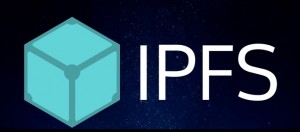 Slinging across my Twitter feed came this: “HTTP is obsolete. It’s time for the distributed, permanent web.” Intrigued, I went to take a look. It wasn’t long before my jaw dropped open. What the post was describing was a nascent technology and protocol that was like a combination of the best parts of BitTorrent and Bitcoin combined with web capabilities.
Slinging across my Twitter feed came this: “HTTP is obsolete. It’s time for the distributed, permanent web.” Intrigued, I went to take a look. It wasn’t long before my jaw dropped open. What the post was describing was a nascent technology and protocol that was like a combination of the best parts of BitTorrent and Bitcoin combined with web capabilities.
Modestly dubbed the “InterPlanetary File System” or IPFS, it is described as:
A peer-to-peer distributed file system that seeks to connect all computing devices with the same system of files. In some ways, IPFS is similar to the Web, but IPFS could be seen as a single BitTorrent swarm, exchanging objects within one Git repository. In other words, IPFS provides a high throughput content-addressed block storage model, with content-addressed hyperlinks. This forms…a data structure upon which one can build versioned file systems, blockchains, and even a Permanent Web. IPFS combines a distributed hashtable, an incentivized block exchange, and a self-certifying namespace. IPFS has no single point of failure, and nodes do not need to trust each other.
But what makes this even more compelling is that Neocities has made all of its tens of thousands of hosted websites “available for viewing, archiving, and hosting by any IPFS node in the world.” In other words, anyone can archive any of those websites through a simple command.
Neocities is betting big on IPFS, even to the point of declaring it to be a replacement of HTTP (and they list a number of problems with HTTP that IPFS solves).
I’m not sure that I’m willing to go that far yet, but it seems clear to me that IPFS offers some interesting and potentially very useful capabilities. Anyone interested in the future of the Internet would be wise to take a closer look.


This sounds like freenet, just with less overhead and probably less security & privacy.